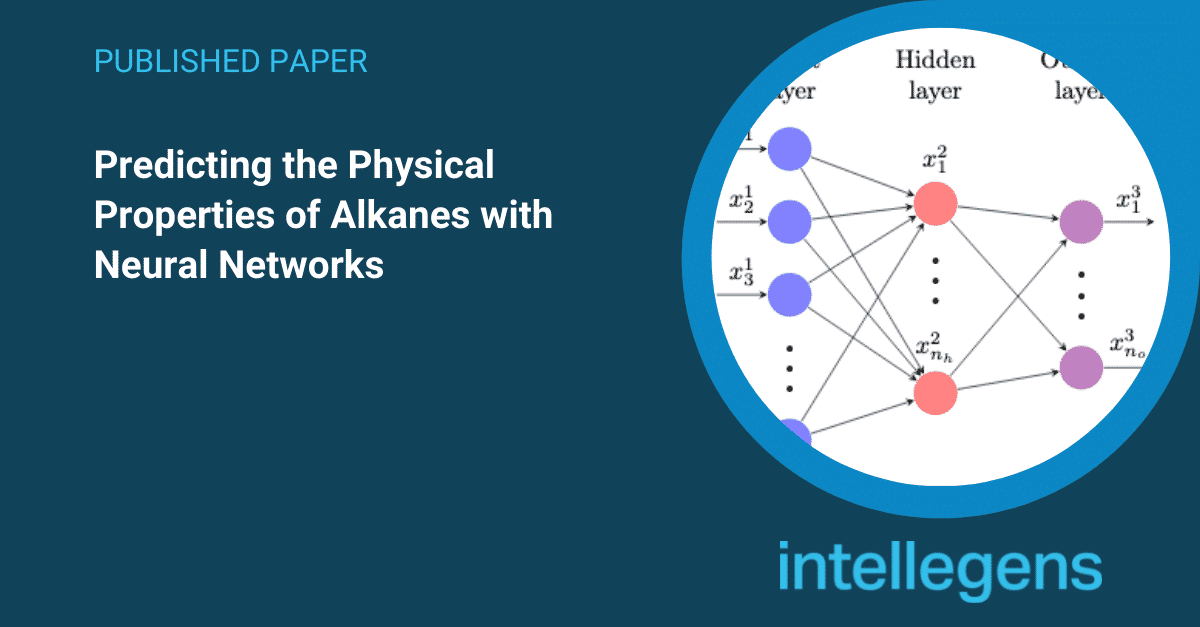Peer-reviewed Paper
This study serves as a solid platform from which to further investigate physical properties of alkanes. This generic neural network architecture could merge sparse experimental data with molecular dynamics simulations to predict physical properties of alkanes. Artificial neural networks were trained to predict the physical properties of alkanes.

Abstract
We train artificial neural networks to predict the physical properties of linear, single branched, and double branched alkanes. These neural networks can be trained from fragmented data, which enables us to use physical property information as inputs and exploit property-property correlations to improve the quality of our predictions. We characterize every alkane uniquely using a set of five chemical descriptors. We establish correlations between branching and the boiling point, heat capacity, and vapor pressure as a function of temperature. We establish how the symmetry affects the melting point and identify erroneous data entries in the flash point of linear alkanes. Finally, we exploit the temperature and pressure dependence of shear viscosity and density in order to model the kinematic viscosity of linear alkanes. The accuracy of the neural network models compares favorably to the accuracy of several physico-chemical/thermodynamic methods.
Publication details
Publication: Fluid Phase Equilibria
Title: Predicting physical properties of alkanes with neural networks
Authors: Pavao Santak, Gareth Conduit
DOI / Link: https://doi.org/10.1016/j.fluid.2019.112259

